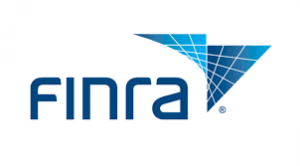
Practitioners are familiar with the fact that a failure to respond to a FINRA Rule 8210 request almost automatically results in an industry bar. Except when it doesn’t. The Office of Hearing Officers (the “OHO”) recently published a decision in which it discussed what the Hearing Officer referred to as a “partial but incomplete response” to FINRA’s requests for testimony.
In March, the OHO rendered a decision against Jason DiPaola who was accused by FINRA Enforcement of taking discretion in his mother’s E-trade account without written instructions and without disclosing the account to his employer Chardan Capital Markets, LLC (“Chardan”) in violation of NASD Rule 3050. Dep’t of Enforcement v. DiPaola, Discip. Proc. No. 2018057274302 (OHO Mar. 25, 2022). The OHO, however, claimed that the “most serious allegation” was DiPaola’s failure to appear and provide on-the-record (“OTR”) testimony.
DiPaola was not a trader at Chardan and had no retail customers. DiPaola worked in the firm’s equity capital markets group. DiPaola was first interviewed by FINRA Staff in January of 2018. The Staff obtained account statements for DiPaola’s E-trade accounts and his mother’s E-trade account. FINRA also obtained over a million e-mails from Chardan.
The Staff asked for a second OTR which took place in April 2019. During the second OTR, DiPaola’s counsel, who also represented Chardan, asked that the OTR be suspended because he discovered that he had a conflict upon hearing DiPaola’s testimony. A third OTR took place over two days on July 17, 2019 and July 18, 2019.
On March 11, 2021, a year and eight months since DiPaola’s two-day, 2019 OTR, the Staff asked for yet another OTR on March 26, 2021. DiPaola’s counsel informed the Staff that he was not available on March 26th. On March 26, 2021 the Staff sent DiPaola’s counsel a Wells Notice and another Rule 8210 request for an OTR on April 5th. Dipaola’s attorney responded in an e-mail, “[a]re you serious? You served a Wells Notice, you cannot take another OTR after serving a Wells Notice. Does your supervisor know what you are doing?” The FINRA Supervisor declined to withdraw the request and DiPaola failed to appear on April 5th. Enforcement sent another 8210 requesting an OTR on April 15, 2021 which DiPaola also failed to attend.
DiPaola argued that FINRA lacked the authority to demand his testimony because FINRA’s investigation had concluded with the issuance of the Wells Notice. In making this argument, DiPaola relied on FINRA Regulatory Notice 09-17 (“RN 09-17”). RN 09-17 discusses the Wells process. Part of the process is that, after receiving a Wells Notice, the potential respondent is then given the opportunity to make a Wells Submission explaining why formal charges are unwarranted. RN 09-17 states that the Staff will review the Wells Submission “and may ask for additional information or obtain additional evidence in the matter.” DiPaola’’s attorney’s argued that no further investigation could take place until DiPaola had made a Wells Submission. The Hearing Officer disagreed.
Here is where the matter gets interesting. Enforcement sought to bar DiPaola from the industry for failing to attend the OTR. As many lawyers know, this is the standard sanction that FINRA seeks for failing to respond to an 8210 request and it is routinely granted by the OHO. For an individual who provides a partial but incomplete response to Rule 8210 requests, the Sanction Guidelines state that “a bar is standard unless (i) the person can demonstrate that the information provided substantially complied with all aspects of the request,” or (ii) mitigating factors are present. The OHO stated that it was also required to assess (i) the importance of the information sought from FINRA’s perspective, (ii) the number of requests made and, (iii) whether the respondent provided valid reasons for not responding.
Despite finding that DiPaola had no valid reason for not responding and that the information sought was important, the Hearing Panel declined to impose a bar and only imposed a 30 day suspension. The most significant factor seem to have been the issuance of the Wells Notice. The Hearing Panel determined that the act of issuing the Wells Notice meant that Enforcement had reached a preliminary determination to recommend formal discipline. The Hearing Panel decided, therefore, that DiPaola’s prior testimony and information responses before April 2021 were “significantly, if not substantially compliant with Enforcement’s Rule 8210 requests.” Notably the OHO imposed no suspension related to the other causes of action and drastically reduced Enforcement’s request of a bar with regard to the Rule 8210 violation. The OHO also reduced Enforcement’s requested fines of $32,500 to a mere $5,000.
Interestingly, it was probably the threat of a bar that caused DiPaola to take this matter to an administrative hearing in the first place. Unfortunately for DiPaola, Enforcement’s overreach likely cost him a great deal in legal fees and anxiety. Despite this win, he probably wishes he had gone to that OTR in the first place.
Herskovits PLLC has a nationwide practice defending FINRA investigations and disciplinary proceedings. Feel free to call us for a consultation at (212) 897-5410.
 FINRA Lawyer Blog
FINRA Lawyer Blog

